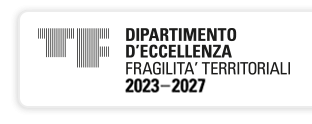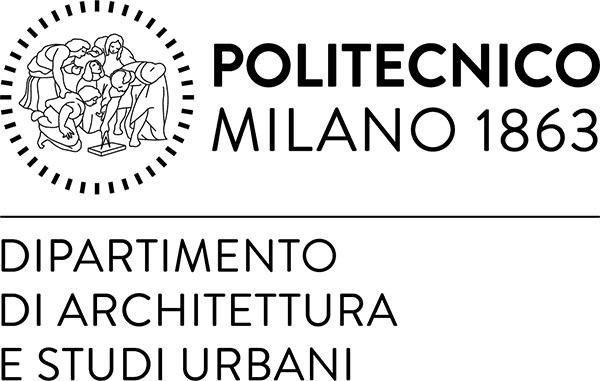ARS-Lab – Architecture Resources Strategies
Structure Typology
Research Unit
Scientific Responsible
Ilaria Valente
Teaching staff
Marco Biraghi, Alessandro Rocca, Marco Bovati, Emilia Corradi, Luca Maria Francesco Fabris, Andrea Di Franco, Filippo Orsini, Luigi Spinelli, Andrea Gritti, Fabrizia Berlingieri, Barbara Coppetti, Cassandra Cozza, Andrea Oldani, Giulia Setti
Research Fellows
Elena Fontanella, Sandra Maglio, Alisia Tognon
PhD Fellows
Arian Heidari Afshari, Sara Impera, Mauro Marinelli, Alessandro Raffa, Elena Scattolini, Claudia Zanda, Francesca Zanotto
Adjunct collaborators
Guido Morpurgo, Annalisa de Curtis
Contacts
Responsible e-mail
DAStU Thematic Areas
Architecture: Types, Shapes, Spaces
Heritage, Cultural Landscapes, Historic Buildings
Cities, Landscapes, Territories
Research topics
ARS Lab is established as a multidisciplinary research group that investigates the topic of Territorial Fragility on a broad spectrum. The laboratory develops multiple activities by applying a research line, elaborated in the context of the PRIN 2012 “Re-cycle Italy”, classified into two main variables: scale (a) and context (b).
ARS Lab, therefore, reflects on the questions of finalizing effective design strategies to promote reuse and regeneration of settlement assets subject to disposal and abandonment processes, which are based on (a) different scales of artefacts, fabrics, networks; (b) diversity of urban, suburban, rural contexts. In this perspective, the research aimed to investigate some specific case studies about the concept of “fragility”, which are assumed as a guiding role,
In particular, the objects of the ongoing research are:
- regions hit by natural disasters (e.g. the crater’s areas created by seismic events during the last 50 years in the Italian territory;
- prisons (e.g. San Vittore, Opera and Bollate jails);
- the heritage settlements in the central-southern Italian Apennines and the underused sites in Lombardy region (e.g. historical heritage areas and educational compound);
- The international cultural heritage: e.g. the historical sites in India (Gujarat) and inland areas of China;
- borderlands, seacoasts and inland waters with climate change effects (e.g. Tierra del Fuego – Chile, Etang de Beurre – Provence, France, Mantua lake);
- Open Data for Cultural Heritage for creating sharing knowledge, computer data and mapping resources in peripheral geographic areas;
- Climate Change as an opportunity for urban and territorial regeneration of fragile contexts through suitable design techniques;
- neighbourhoods passed through processes of hiding or elimination (e.g. Jewish Ghetto in Warsaw).
In this perspective, the research program contributes to the development and consolidation of the DASTU Department of Excellence project through:
- Qualitative and quantitative analysis methods, for reading, interpreting and understanding the territorial paradigms about social and cultural fragility in specific scale and context;
- Measurement, mapping and representation techniques for observing phenomena. Integration between traditional urban analysis methods, new information sources and new communication tools (including big and open data);
- Multiscale and multidisciplinary design tools aimed to improve the architectural, urban and environmental resources, in particular in critical context and degenerative processes of architectural structures and environmental and cultural systems.
Specifically, ARS lab develops and promotes national and international partnerships, building networking with research centres which common sharing knowledge about territorial fragility topics.
Links with other Universities and Research Institutions
- Shanghai Jiao Tong University, CN.
- Technische Universiteit, Delft, NL.
- Eidgenössische Technische Hochschule Zürich, Switzerland.
- Shanghai Meteorological Information and Technology Support Center, China.
- TONGJI UNIVERSITY, China.
- North China University of Technology, China.
- Museum of Chinese Gardens and Landscape Architecture, China.
- Beijing University of Civil Engineering and Architecture, China.
- Kungliga Tekniska Högskolan, Sweden.
- CEPT University, Ahmedabad, India
- Parco Nord Milano, Italia.
- Centro Studi PIM, Italia.
- Progetto Natura Onlus, Italia.
- PACT Platform for Alternatives in City and Territory, France.
- Municipality of Sulmona (AQ), Municipality of Rivisondoli (AQ), Majella National Park, Comunità Montana Sirentina, Comunità Montana Vallo di Diano.
- Protection agreement with Palazzo Ducale Mantova.
- Council of Europe, Venezia-Strasburgo.
- Department of Architecture and Building, Wola District Office (Wydzial Architektury i Budownictwa, Urzad Dzielnicy Wola), Warsaw.
- University of Warsaw, Department of Italian Studies.
- Zydowki Instytut Historyczny, Warsaw.
- Facultad de Arquitectura, Diseño y Estudios Urbanos y la Escuela de Arquitectura de la Pontificia Universidad Católica de Chile.
Research Projects (completed and under progress)
OtherActivities
Conferences:
- Symposium for the introduction of research “Le littoral mediterranéen face au risque climatique” – Marseille, January 2019
- Symposium for the introduction of research Magallanes 2020 – Santiago de Chile / Puerto Arenas. February 2019
- Polimi Summer School: workshop about Ghetto area of Palac Kultury, Warsaw – Milano, 27th August – 7th September 2018;
- Festiwal Kultury Żydowskiej Warszawa Singera, Warsaw 25th August 2018 and Final workshop exhibition at ul. Waliców;
- Boundary Landscapes, Università degli Studi di Brescia, 19th-20th June 2018;
- ICOM Poland, “Museum and Identities. Planning an extended museum”, Warsaw, 21st-23rd November 2018.
Advisory activities:
- Planning Consulting for the Director’s Document for Reconstruction draft (DDR): Municipalities of Castelsantangelo sul Nera (MC) and Campotosto (AQ)
- Consulting for Wola-District Planning Bureau, Warszawa
Other activities:
- Partnership with “La Stampa” for the publicity of reconstruction projects about the municipalities damaged by the 2016 earthquake (FARB research “Learning from disasters”)
- International Call for a new permanent observatory for purposing new Memorials in fragile urban areas of Eastern Europe (in particular in Poland, Lithuania, Latvia and Ukraine); presentation of the project to the European Council (Strasbourg 2019)





